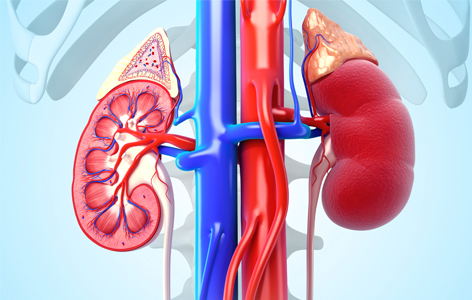
Autosomal dominant polycystic kidney disease (ADPKD) is an inherited condition characterized by enlarged kidneys with numerous fluid-filled cysts, which distort the architecture of the kidneys and impair their function. The severity of the disease progresses over time and by the age of 55 half of people with ADPKD require dialysis or a kidney transplant.
Although researchers know that ADPKD is caused by changes in two genes known as PKD1 and PKD2, they do not fully understand how the different types of genetic changes impact the severity of the disease. To address this, a team led by TGHRI Senior Scientist Dr. York Pei examined the relationship between genetic changes in PKD1 and PKD2 and health outcomes in 709 patients from 220 families with ADPKD.
Researchers discovered that all participants with ADPKD carried one of four classes of genetic changes. The most common class, observed in 38.3% of those with ADPKD, was located in the PKD1 gene and put participants at high risk of severe disease and death. In contrast, participants carrying one of the other three classes of changes were found to be at a reduced risk of severe disease and death.
Taken together these findings lay the foundation for the development of a new gene-based test called 'next generation target sequencing' that is able to accurately predict the severity of patients' disease and advance personalized medicine.
This work was supported by the Canadian Institutes of Health Research, the National Institutes of Health and the Toronto General & Western Hospital Foundation.
Refining genotype-phenotype correlation in autosomal dominant polycystic kidney disease. Hwang YH, Conklin J, Chan W, Roslin NM, Liu J, He N, Wang K, Sundsbak JL, Heyer CM, Haider M, Paterson AD, Harris PC, Pei Y. Journal of the American Society of Nephrology. 2015 October 9. [Pubmed abstract]




